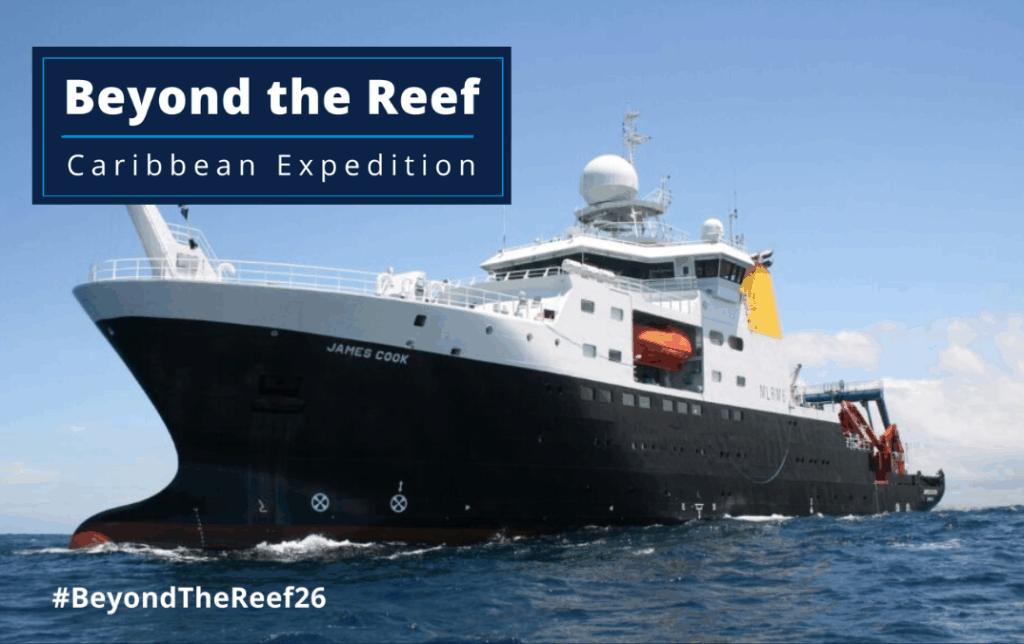
In January 2026, the Blue Belt Programme will set sail from the Dominican Republic to the Territories of Anguilla, Turks and Caicos, and the Cayman Islands. This is the first expedition to the Caribbean in the 10-year history of the programme. Over six weeks, a team of 46 marine scientists on board the RRS James Cook will study the previously uncharted waters of these islands.
Collectively, these Territories steward 365,000 km2 of ocean— an area one and a half times the size of the UK. The upcoming expedition will collect new data on offshore ecosystems. This will support the UK Overseas Territory Governments in making informed decisions for the responsible stewardship and management of these territories.
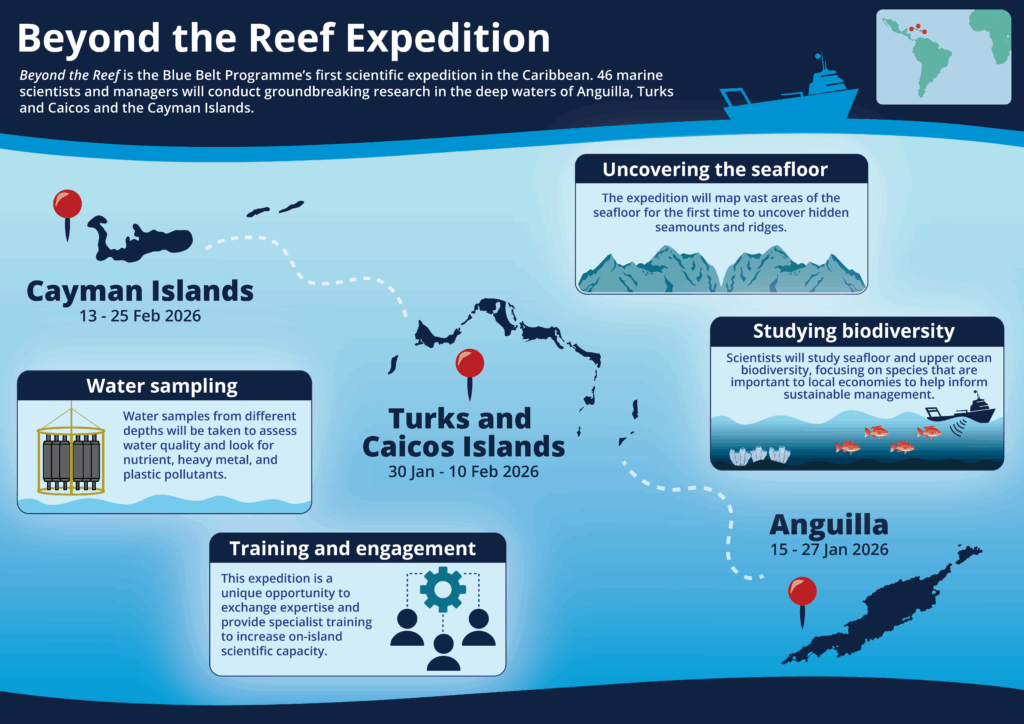
Advancing science through collaboration
Eighteen scientists and marine managers from the governments of Anguilla, Turks and Caicos Islands, and the Cayman Islands will join UK scientists from Cefas, the Marine Management Organisation, the National Oceanography Centre, the UK Hydrographic Office, the Natural History Museum and the British Antarctic Survey aboard the RRS James Cook.
- Anguilla will be represented by five scientists, contributing vital expertise in local fisheries, the environmental impacts of human activities, and detailed knowledge of local ports.
- Turks and Caicos Islands will send five scientists, whose specialisms include tropical marine ecology, biogeochemistry, fisheries management and enforcement, and broader environmental issues.
- Cayman Islands will be supported by eight scientists for the final leg, including seabird specialists who will undertake one of the first comprehensive seabird surveys at sea in Cayman waters.
This collaborative effort brings together diverse skills and local insights, enabling pioneering research beyond the Caribbean’s reefs and fostering knowledge exchange between UK and Overseas Territory scientists.
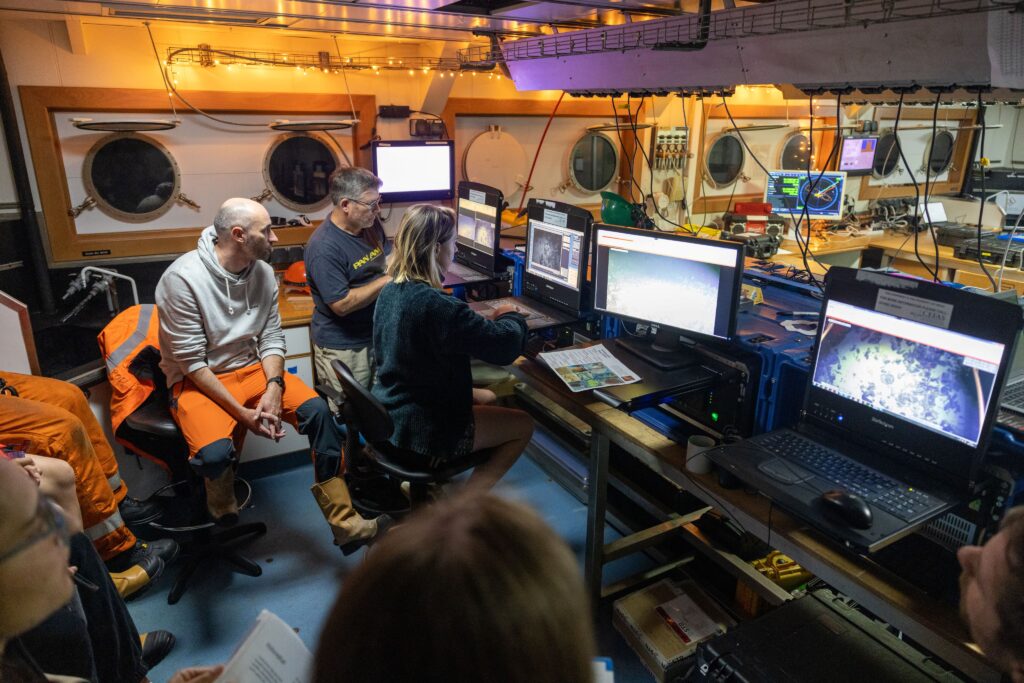
Demystifying the deep
While Anguilla, Turks and Caicos, and the Cayman Islands are well known for their thriving coral reefs and pristine beaches, much of the scientific research to date has focused on their coastal waters. The deeper offshore regions, by contrast, remain largely uncharted due to the challenges of access. As a result, the impact of human activities, climate change, and pollution on these ecosystems is still poorly understood. Improving scientific understanding of these areas is key to developing effective strategies to manage and protect them. The data gathered during the Beyond the Reef Caribbean expedition will play a pivotal role in closing these knowledge gaps and supporting the conservation of the Caribbean’s lesser-known marine environments
Exploration of offshore biodiversity
The UK Overseas Territories contain around 90% of the UK’s biodiversity and host a huge range of unique and endangered species, some of which are found nowhere else on earth. The survey will investigate the benthic (seafloor) and pelagic (open water) ecology of offshore areas. Many of these areas have never been scientifically studied, with the potential to discover new species and ecosystems.
Despite the unknowns, human activities may influence deep-water biodiversity. Fish Aggregating Devices (FADs)— free-floating devices to attract fish— are commonly used by fishermen in Anguilla and the Cayman Islands to attract pelagic species like tuna. However, these can also attract other species, like sharks, potentially increasing by-catch rates. Through a combination of Baited Remote Underwater Video Systems (BRUVS), environmental DNA and fisheries acoustics, we will study how FADs influence the local biomass and composition of fish species, with a view to understanding the risks and opportunities they present.
We can’t know the global significance of the Belt Belt network if we don’t know what’s in it. By investigating deep water habitats and how humans influence them, scientists will get an initial indication of areas that need protection from exploitation. These insights will help inform the identification and designation of conservation strategies and sustainable fishing methods.
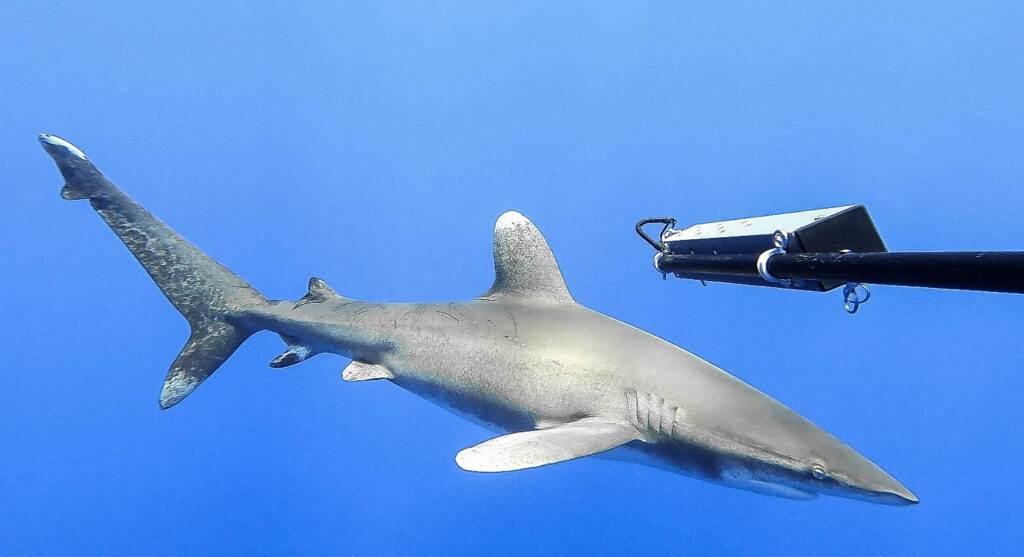
Mapping the seafloor for the first time
Scientists will produce some of the first detailed maps of vast stretches of seafloor. Large seafloor features, such as seamounts, ridges, and banks, dramatically influence local biodiversity. Seamounts, for example, can act as ecological hotspots, attracting a rich variety of marine life. This can result in a high abundance of commercially important fish and protected species like sharks. By combining these maps with camera surveys and sampling, scientists will gain valuable insights into the ecology associated with these seafloor features. This knowledge could help to identify areas that require protection and support opportunities for sustainable fishing. Additionally, seafloor mapping will help improve navigational safety by identifying potential shipping hazards.
Monitoring water quality and ocean chemistry
The expedition will monitor local and external pollution threats facing UK Overseas Territory waters, including pollution sources like plastics, nutrients, and heavy metals. This information will be used to examine patterns of pollution dispersal. Baseline oceanographic information, such as dissolved oxygen or acidity levels, will also be collected to provide insight on the local impacts of climate change and the magnitude of threats to key habitats such as coral reefs.
Across all the Overseas Territories involved, understanding the extent of pollution is a particular area of focus. To support ongoing water quality monitoring after the expedition, Caribbean scientists will receive specialist laboratory training.
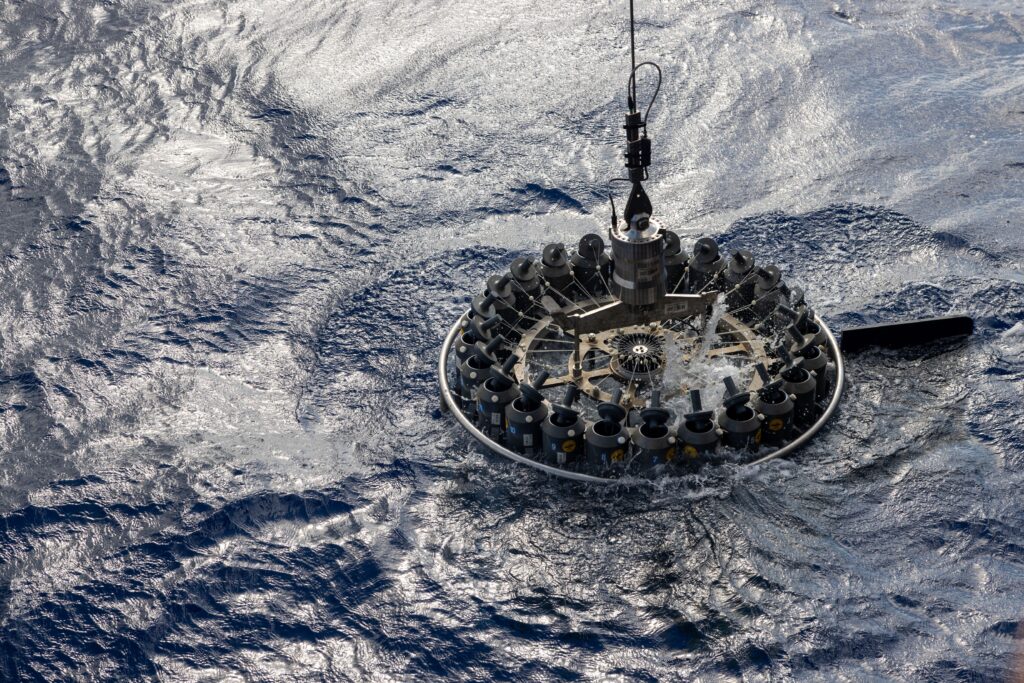
Supporting sustainable ocean use
Fishing is important for livelihoods, communities, leisure, and tourism for Anguilla, Turks and Caicos and the Cayman Islands. However, the distribution and abundance of commercially important species remain relatively understudied. Scientists will investigate the ecologies of seafloor and open-ocean species like grouper, snapper, and tunas as well as current fishing practices.
The expedition will research the ecology of offshore areas to explore opportunities to develop blue economic activities and identify ecosystems that require protection. The data collected could help inform marine management decisions and support sustainable fishing practices
Continuing a legacy of science-driven action
The Blue Belt Programme works closely with UK Overseas Territories to safeguard nearly 4 million square kilometres of ocean supporting healthy, productive marine ecosystems. Scientific exploration has been central to the programme with the upcoming expedition being the 10th. This expedition builds on the success of previous missions, including the recent Discovery 159 survey to the Atlantic islands of Ascension and St Helena in 2022. The Beyond the Reef Caribbean expedition is continuing a legacy of science-driven action to protect the planet’s most precious resource.
Stay up to date with the expedition's progress by signing up our newsletter and following on social media using the #BeyondTheReef26.
- Follow @UKGovBlueBelt on Twitter
- Like @UkGovBlueBelt on Facebook
- Subscribe to the Blue Belt Programme newsletter
- Read the Blue Belt Programme blog
- For any further information, email bluebelt@cefas.co.uk
Leave a comment